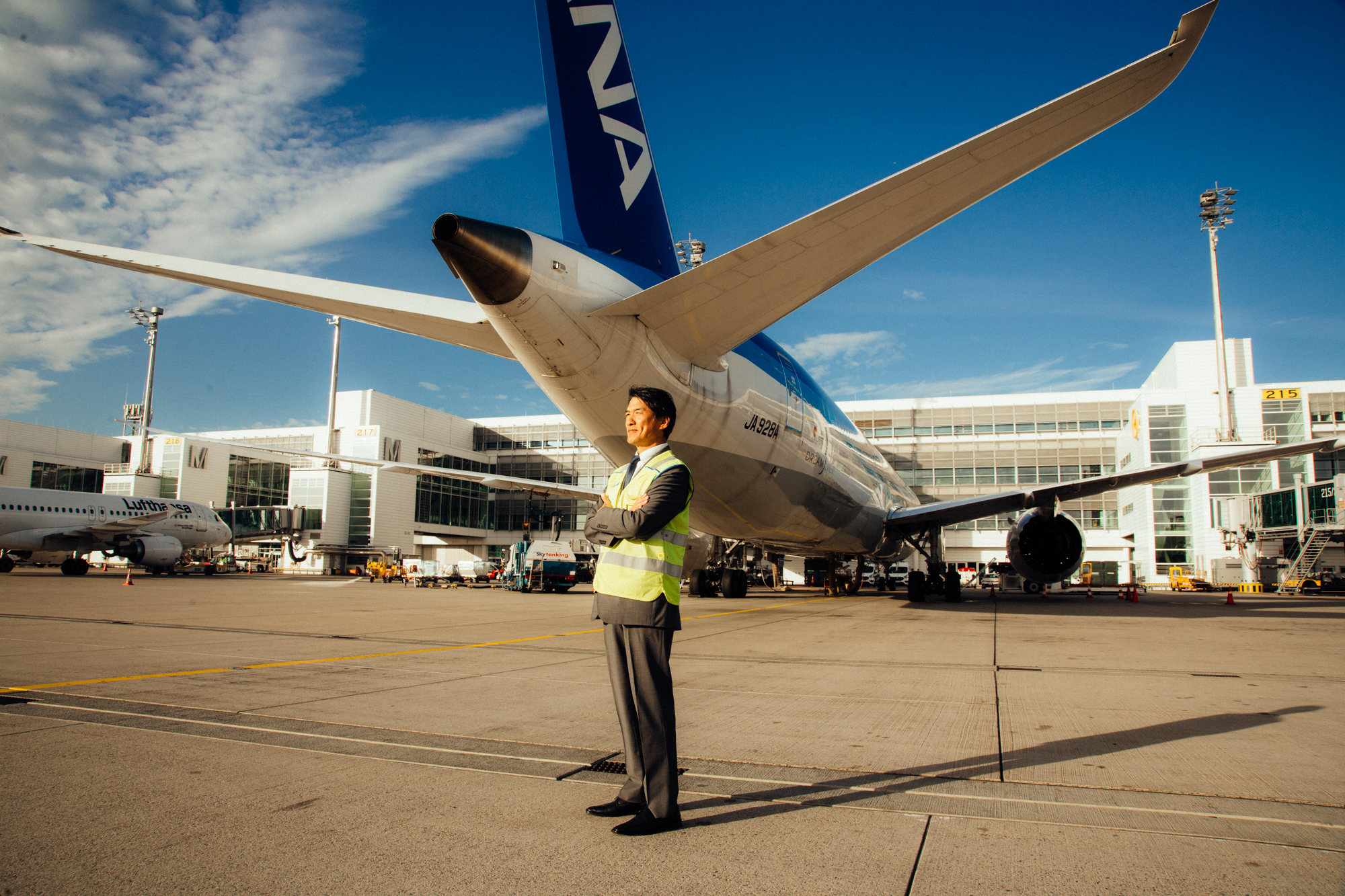The Germans’ favorite alcoholic beverage is beer – and so is the Japanese. Kirin, one of Japan’s most well-known breweries, ventured into Germany only a few years ago, but the relationship with the homeland of beer is almost as old as the company itself. Yoshinori Tsuchiya, CEO of Kirin Europe GmbH, talks about hurdles and potentials of the German market, the purity law, and how the company intends to conquer the highly competitive shelves of German supermarkets.

J-BIG: No doubt some Japan fans among our readers know the name Kirin very well. What might they not yet know about your company?
Yoshinori Tsuchiya: Beer is our core business, but we also pursue a variety of other activities. In the beverage sector, a whole range of other brands belong to the Kirin Group, and in addition to beer, we also sell wine, whiskey, soft drinks, and milk beverages. Japan is our core market in this respect, but we also have a very strong position worldwide. In Australia, for example, we own the “Lion” beer brand, which accounts for almost 50 percent of the Australian beer market. Southeast Asia is also an important market for our beverage business: In Myanmar, for example, we own one of the country’s largest breweries. And on the American East Coast, we operate as a bottler for Coca-Cola products. We also import wines from all over the world to Japan to sell them there through our wine company Mercian. The Kirin Group’s portfolio is thus already much more diverse than that of most of our competitors.
In addition to trading beverages, we are also active in the pharmaceuticals and biochemicals business. Our company Kyowa Hakko Bio, for example, develops and sells pharmaceutical raw materials, amino acids and health foods. We also produce medicines based on fermentation processes which are used to treat cancer or kidney diseases. Parkinson’s and neurodermatitis therapies are other areas in which we are active.
These business areas are currently very important mainstays for us, especially abroad. Interestingly, in the medical business, we generate half of our sales outside of Japan. In Europe, the medical and biochemical businesses are much larger than the beer business. In fact, for these businesses, Europe is the largest market outside Japan!
So we have a really broad portfolio – even if we look like a straightforward beer brand to the outside world. The different business areas support each other. This gives us a strong profit structure and enables us to deal with major challenges like the Corona crisis.
J-BIG: A highly diversified company, then. How did it all begin?
Yoshinori Tsuchiya: The story of Kirin Beer began when two Americans founded a company called Japan Brewery in Yamate, Yokohama in 1885. In 1907, Hisaya Iwasaki, president of Mitsubishi Goshi, and Eiichi Shibusawa, the face of the new 10,000-yen bill, among others, bought the company and named it Kirin Brewery Company. The name later changed to the Kirin Group. This is where the roots of our company lie.
In the early 20th century, many foreigners lived in this area, including Germans. From the beginning, German brewing engineers, using German ingredients, brewed the so-called “German-style lager” at Kirin. So the German art of brewing has been an important part of our company from the beginning.


J-BIG: What role do Germany and Europe play in your beer business today?
Yoshinori Tsuchiya: Currently, it consists of only 10 employees. Five of them work in Düsseldorf, the rest in France and other places in Europe. Europe actually accounts for less than one percent of the Kirin Group’s beer business, with Germany accounting for about 15 percent of that. So our market share is still tiny. The business is currently developing best in France and in the UK. Traditionally, we’ve only offered our beer through Japanese restaurants and supermarkets in Europe, but in France, we’ve now managed to get into local supermarkets like Carrefour. And Germany is next.
For many years, we worked only with Japanese expatriates for distribution here. But since we now also want to reach local supermarkets, starting in January, we for the first time appointed a German sales representative. For Japanese employees, the German language is not the only obstacle – they also find it difficult to understand the market structures here in Germany. In France, it’s easy: There’s Paris in the center, plus a handful of medium-sized cities. But in Germany, beer culture is very regional and differs greatly between North Rhine-Westphalia and Bavaria. If you want to reach every corner of the country, it’s best to let someone who understands Germany well take the lead. From now on, we will establish a regional distribution system here.
The first thing we want to do is target the sushi counters in local supermarkets. Customers who visit such places are often already interested in Japan. Therefore, we believe they will choose our products. Ideally, we can gradually work our way from these niches into the beverage shelves and aisles of supermarkets – and eventually into gas stations. We are trying to achieve this step by step.
J-BIG: How long has Kirin been operating in Germany?
Yoshinori Tsuchiya: In 1983, a first representative office was opened in Düsseldorf – exactly the place where we are having this interview. However, the original purpose of this branch was not to sell beer. Rather, we wanted to gather information to boost technological development. As the home of beer, Germany was naturally the ideal place to do this.
It wasn’t until ten years later, in 1993, that we really started selling beer in Europe. This was particularly difficult in Germany, of course, because each state has its own well-known beer brands. We also had to import the beer from Japan, and that’s expensive. So in the beginning we only sold in France and the UK.
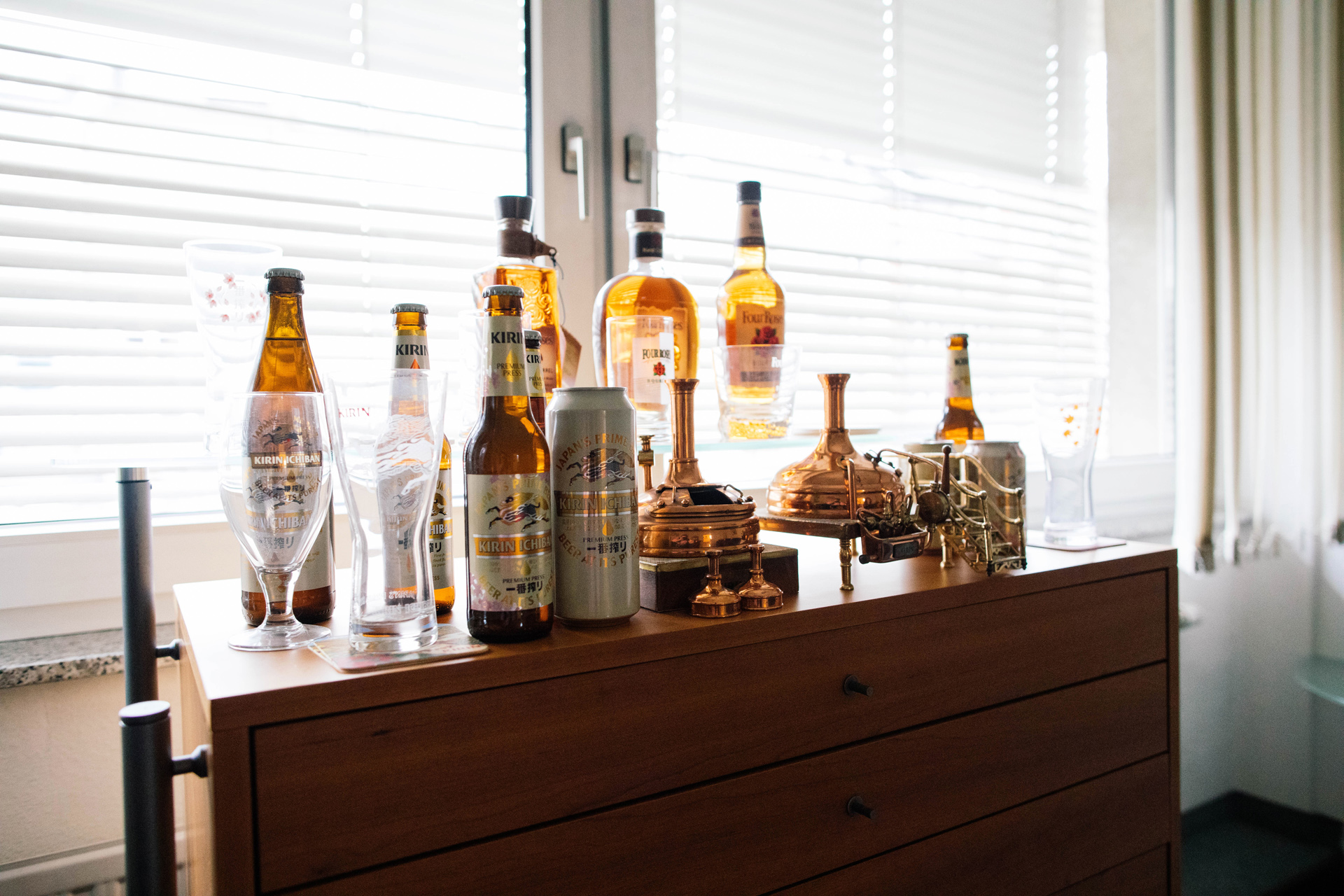
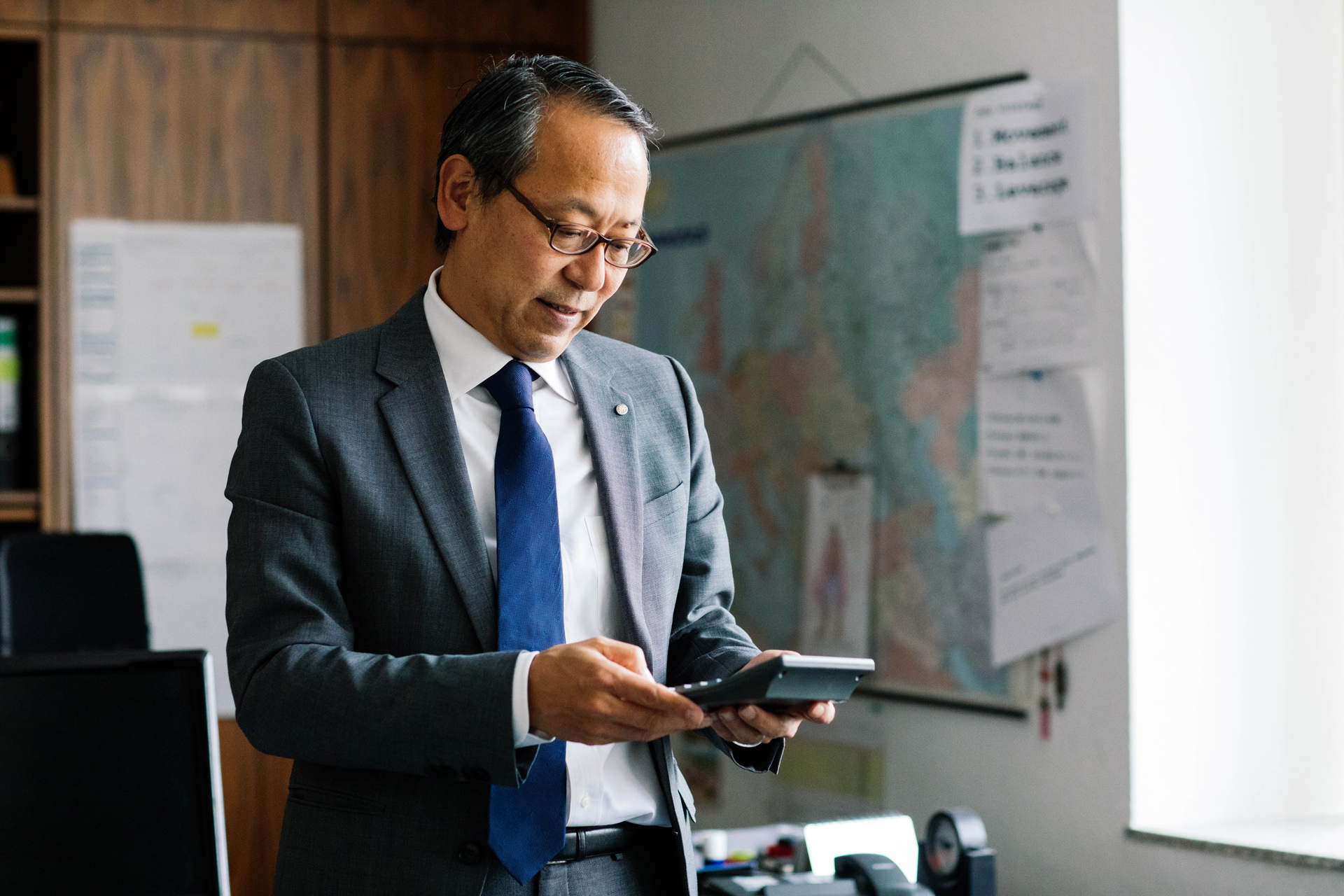
J-BIG: What is your relationship with German brewers like? Does competition prevail or do you help each other out?
Yoshinori Tsuchiya: Kirin has always had a close relationship with the German brewing culture. Since we also brewed beer in the German style, we exported many raw materials from Germany to Japan – malt or hops from Hallertau near Munich, for example. And for decades, each of our brewing engineers has attended the Technical University of Munich or the Technical University of Berlin. So we have built up a strong network here.
This was a decisive factor for the cooperation we established with Weihenstephan several years ago: Since 2010, we have been producing our beer for the European market at the Bavarian State Brewery Weihenstephan, the oldest brewery in the world. The brewery is located in Freising, a town outside Munich. We give the Weihenstephan brewmasters our recipe, and they brew it on site according to those specifications. We regularly send a manager or technical advisor to the brewery to check the quality and help guide the brewers. At the same time, we also always learn a lot from the Weihenstephan staff.
We are actually the only non-German beer brand that has managed to have its own beer brewed under license in a Bavarian state brewery. We are very proud of that. Germany is known for its extremely strict requirements for brewing beer due to the Purity Law, which regulates what ingredients can be used in beer. Obtaining a local brewing license – through trust alone, rather than through acquisition – is therefore quite a hurdle, even for a company with a global presence.
In the future, we want to position ourselves more strongly around the fact that we produce our beer in Bavaria. This is a sign that our beer has been accepted by the home of beer. I think this will also have a positive impact on our brand.
J-BIG: Does Kirin beer “Made in Germany” taste different from the one “Made in Japan”?
Yoshinori Tsuchiya: We try to match the taste, of course, but since beer is a natural product, there are always subtle differences. The ingredients for our European beer do not come from Japan, but from Bavaria. So they are not identical to the ingredients used in our Japanese beer, but they meet the same standards. And there is still some degree of exchange: We source our ingredients in Japan from all over the world, and we bring our own yeast from Japan to Freising.
Nevertheless, there are a few small differences, not least because of the different size and specific conditions of the production facilities. It’s like people growing up in different homes: they have different characters. No matter how much we try to match them, at a certain point we can’t control everything. Our beers are like living beings. Therefore, they can’ t help but absorb the flavor and climate of the region.
In Japan, we do not sell Kirin beer produced by Weihenstephan, unfortunately. But in 2011, we ran a promotion where we gave away Kirin beer produced by Weihenstephan to Japanese people. It was very well received and became hugely popular. Recently, I also heard that Japanese people living in Germany bring this beer with them as a souvenir when they return to Japan.
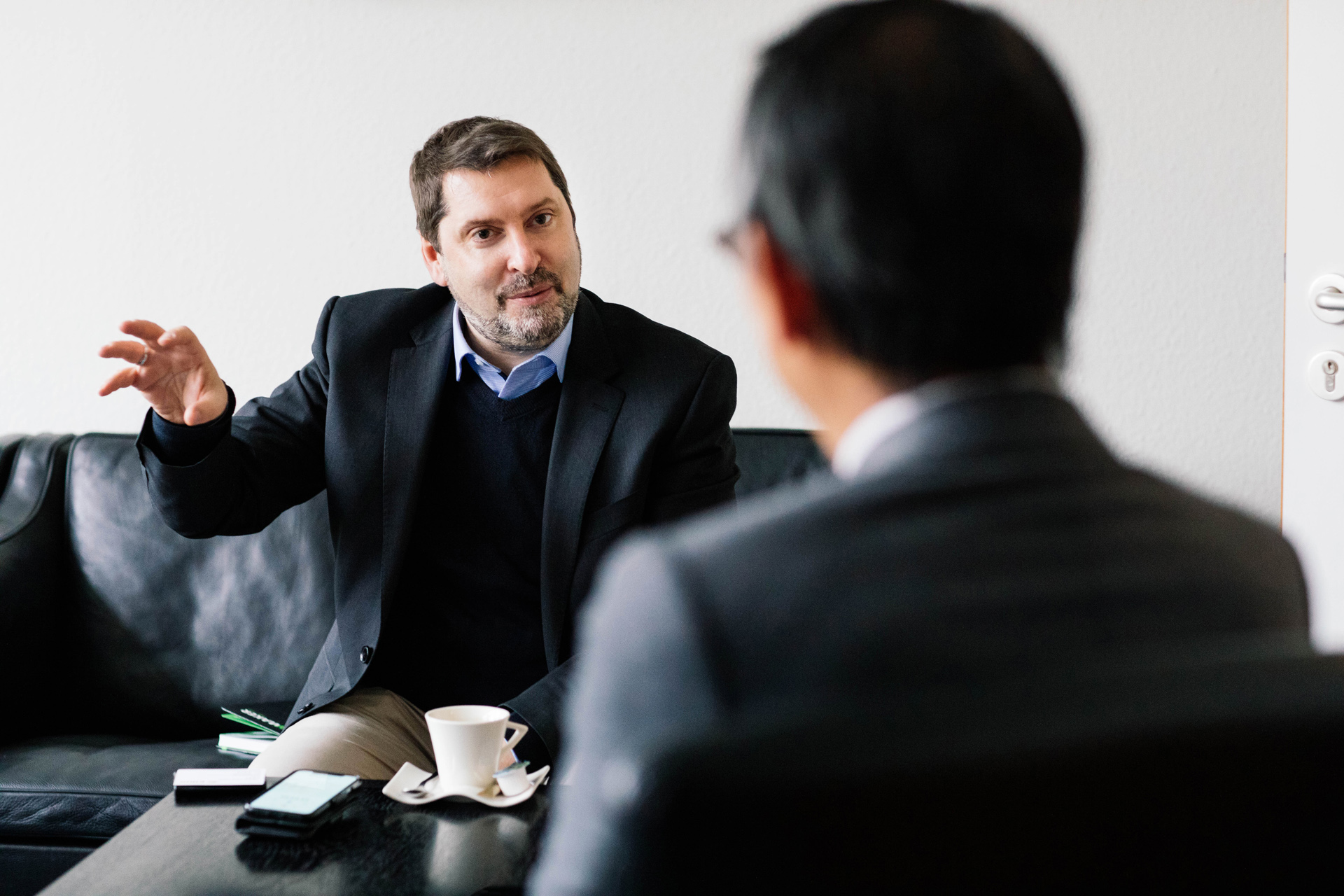
J-BIG: Currently, travel to Japan is difficult because of Corona, and restaurants – your largest distribution channel – are closed over long periods. How is Kirin dealing with the crisis?
Yoshinori Tsuchiya: It is having a huge impact on us. The majority of our sales are generated through restaurants, which are prevented from operating due to the lockdown. In May 2020, our beer keg deliveries amounted to zero. If we can’t sell our beer in local supermarkets, we currently can’t sustain our business – that was also the reason why we decided to bring on a German distributor. Never before has our beer business been so badly affected.
However, we have other pillars to our business. For example, we own the American whiskey brand “Four Roses “, which we also sell here as a distributor. Sales figures are stronghere and greatly exceed our beer sales. In other words, our beer sales are down, but our other businesses are supporting us.
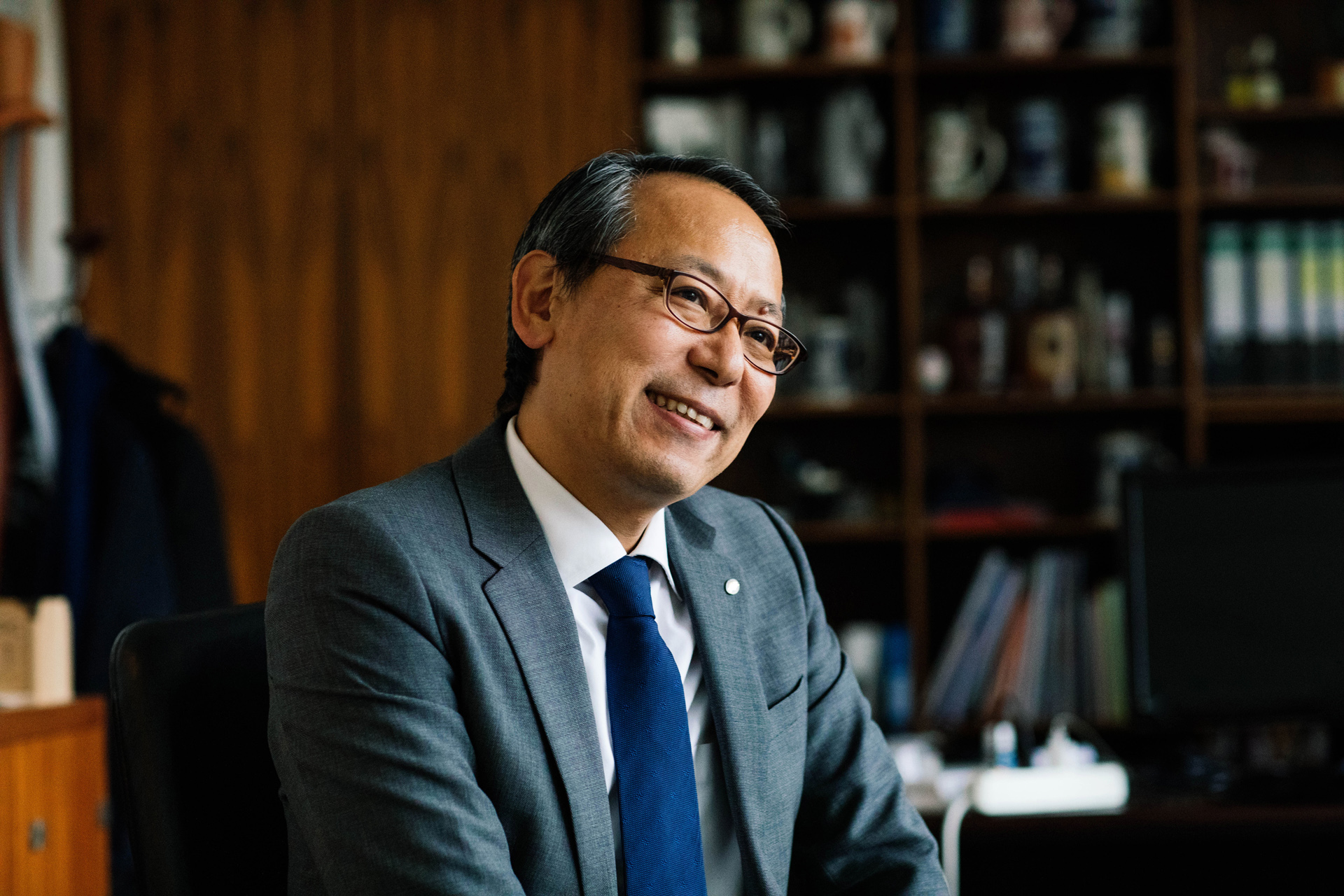
J-BIG: What are your future plans in Germany?
Yoshinori Tsuchiya: Kirin’ s relationship with Germany has been inseparable since the company was founded. I think the growing sales of our product is, to some extent, our way of saying thank you to the Germans. We will do our best to make people love our products even more.
2020 was a very difficult year. Events that are important for us, such as Japan Day in Düsseldorf, regrettably had to be cancelled. So instead, we organized Japan Week, an event where Japan-related businesses could work together to promote their products from October 8 to 11. We spearheaded this event and managed to revitalize the city a bit. The people of Düsseldorf were very happy about it, and we hope to reciprocate in various ways in Germany in the future. Japanese restaurants are very popular in Düsseldorf, and I hope that we can continue to support them – even if we only have a small office here.
I don’t know how long it will take, but I believe our German business can reach the same level as in France and the UK. Until now, German customers have been very set in their ways: the people of Düsseldorf liked Altbier, the people of Cologne Kölsch. So it wasn’t easy to get these customers interested in our products. But the situation is changing, and Germans are starting to enjoy a variety of foods and beverages from all over the world.
What’s more, Germans drink significantly more per capita than the French. This means that if we can get into the German market, we definitely have a chance. One approach is to develop a kind of new tradition: With every Japanese meal, you also drink Japanese Kirin beer. Especially in times when takeaways are the norm, we’re selling 4-can sets through the restaurants. I don’t think the Germans are opposed to such new formats in principle. After all, our beer can already be found in every Japanese restaurant in Düsseldorf. People who want to open a Japanese restaurant in Germany are also inspired by this – they always come to Düsseldorf first and see what the structures are like here.
In addition, as many people are spending more time at home due to Corona, Germans are also starting to cook Japanese food at home. We are happy when they then think, “Oh, I should have a Kirin beer with that.”
At first glance, Germany seems like a difficult market, but at heart, Germans drink the most beer – so really, it can’t be that difficult. From this perspective, the German market offers great potential. And if our beer is well received by the Germans, the beer nation par excellence, that would of course also be a very positive signal for the Japanese market. I’m thinking of Japanese people traveling to Germany, for example: If they see Germans drinking Kirin, that is a testament to quality.



